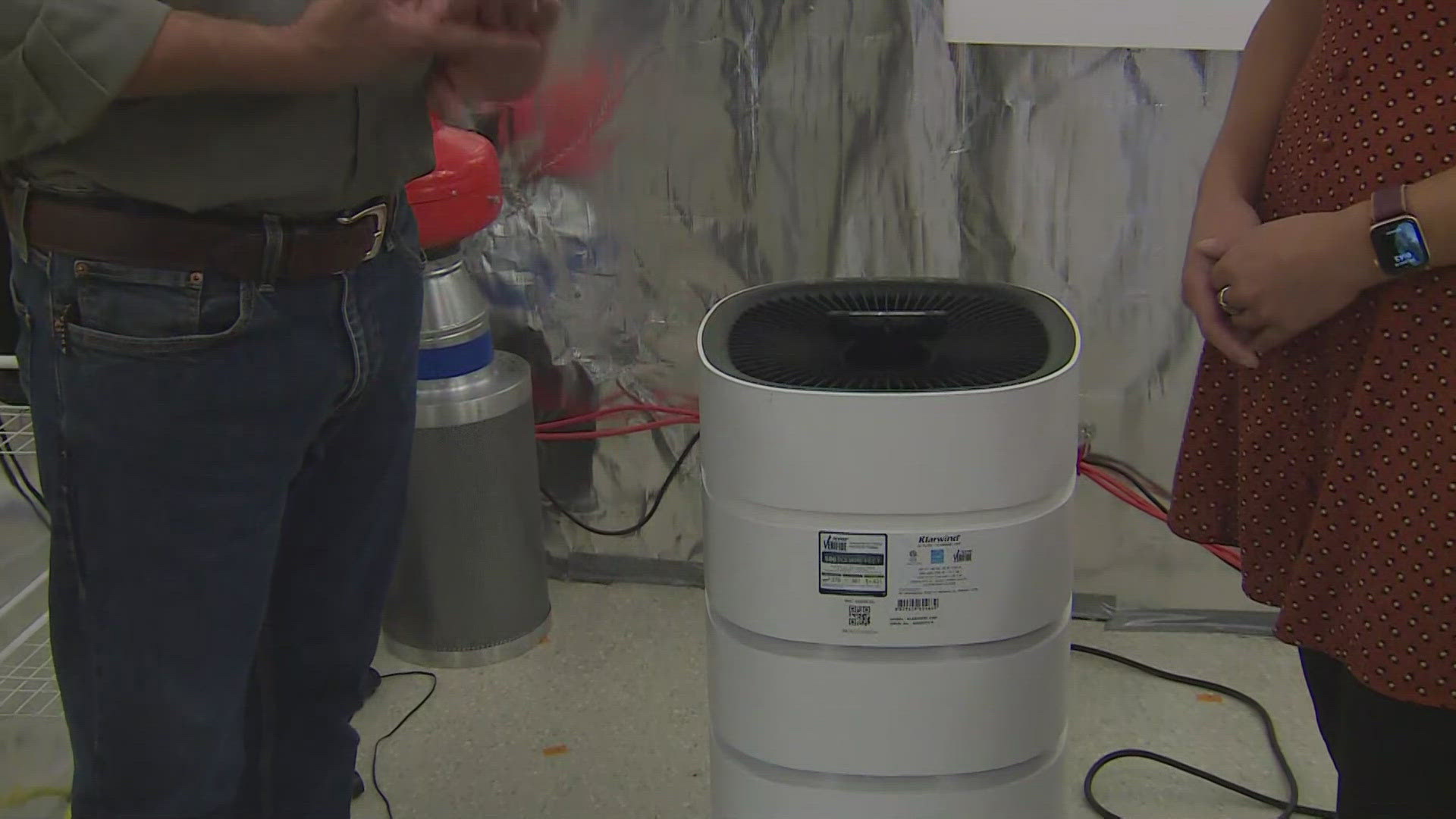BOULDER, Colo. — We're in the middle of Colorado kids returning to school, which means more time spent inside.
We don't get to choose the air we breathe, but improving the air in classrooms is a goal for researchers at CU Boulder, and they're making progress.
"We started with elementary school classrooms and the idea was to improve ventilation in the highest density public schools," Dr. Mark Hernandez, professor of Civil and Environmental Engineering, said.
In 2021, Dr. Hernandez said they started their research in Denver Public Schools. They installed air quality monitoring sensors inside DPS classrooms to see what kids were breathing in real time.
He said they found that HEPA air filters dramatically improved poor air quality in classrooms, for less than the cost of a textbook per child, per year.

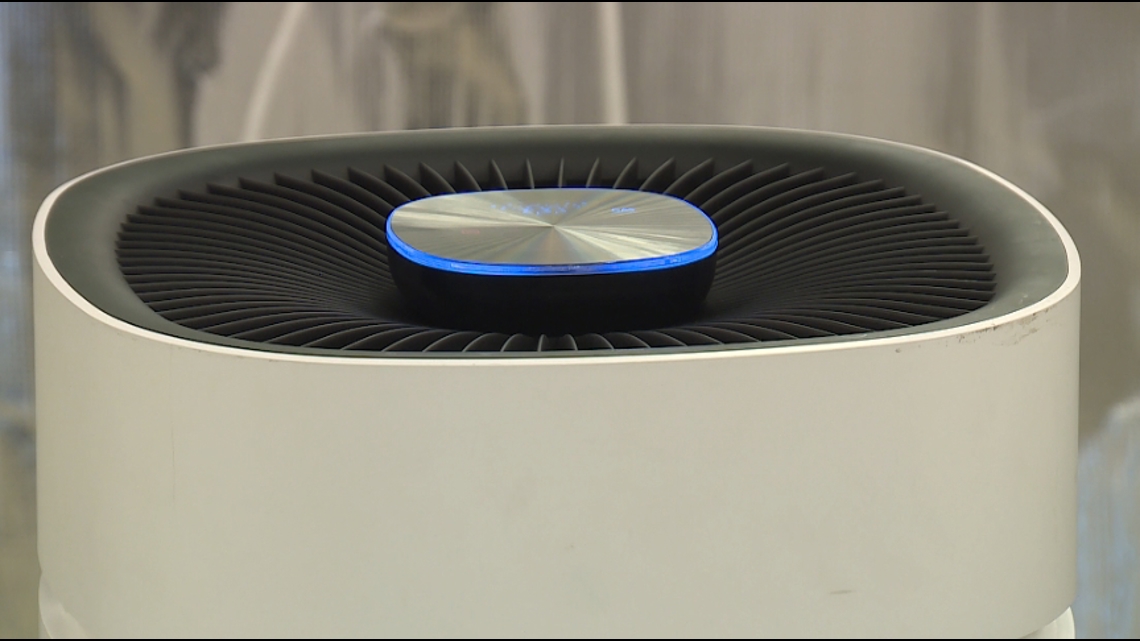
This research was born out of the pandemic, but has expanded beyond just the concerns of infectious diseases.
Dr. Hernandez said thousands of portable air filters have been deployed in classrooms across the state because of this research, thanks to a partnership with the Colorado Department of Public Health and Environment (CDPHE) and grant funding from the CDC (Center for Disease Control).
"We now have data from ventilation performance for buildings all over the state. The good news was, we found out a lot of our buildings and classrooms are high performing. They have really good air quality and they really didn’t need the air cleaners," Dr. Hernandez said. "Others are less performing and when we put those in, we found out they helped ventilation systems do their job."

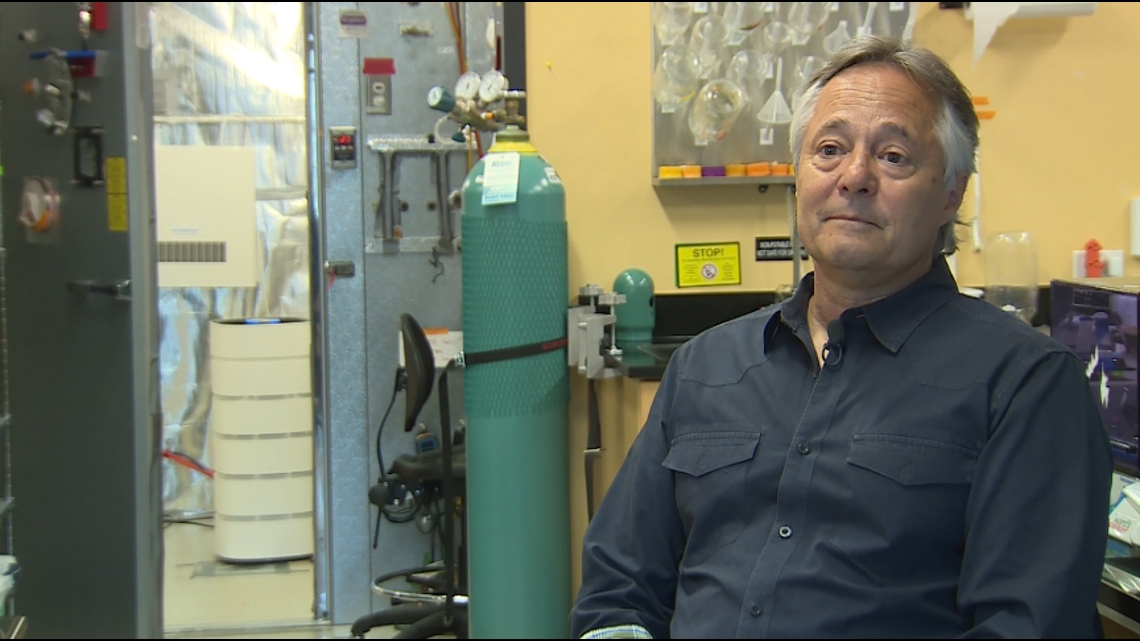
He said portable air filters placed in classrooms helped the overall building's ventilation system work better, which could translate into energy savings.
"They [air filters] don’t consume much energy, as much as a lightbulb, really," said Dr. Hernandez. "We put a little bit of energy in, and we get a big payback in terms of ventilation performance, student comfort and so on."
He said the filters also help with hypersensitivity, asthma, and allergies, especially as wildfire smoke, and other pollutants have been infiltrating our air.
"Asthma’s on the rise in the country and in our state, so this helps everything," said Dr. Hernandez. "Should we get a wildfire and wildfire ash gets in the schools, these ventilation improvements, particularly the in-room air purifiers really help with that."
CU Boulder engineering students have been helping to conduct the research and collect the data.

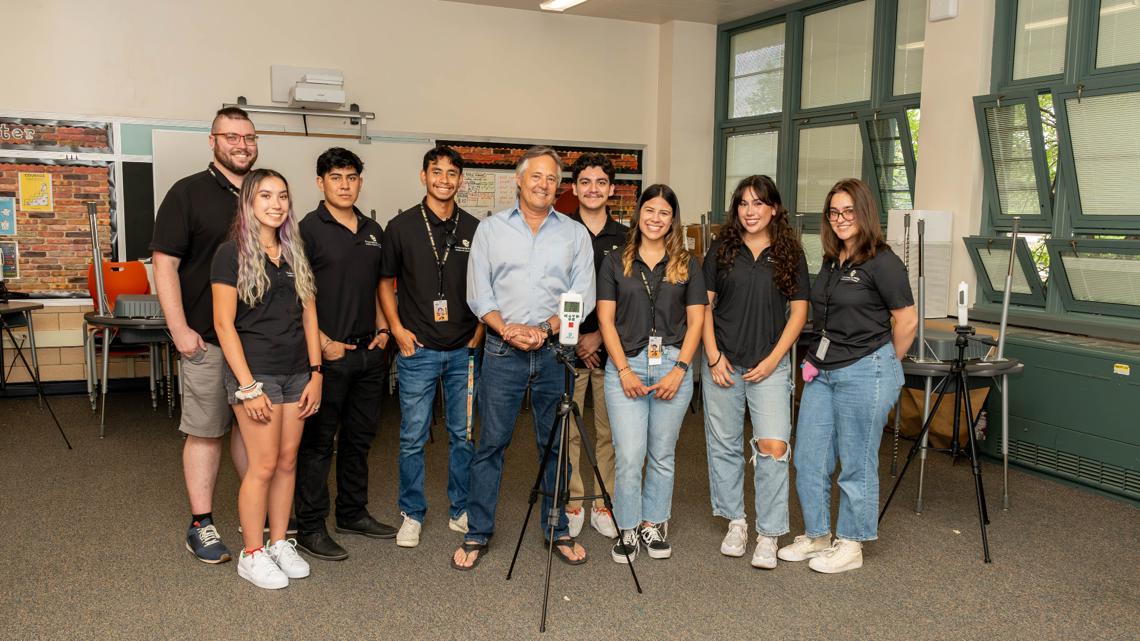
"My research has mostly been looking at how different HVAC systems and room designs impact mixing regimes, so basically, the air that I breathe is the air that you breathe, is that even true? Does that negatively impact the ventilation efficiency of that classroom and how does that impact air quality?" said Kristina Petrov-Strezoska, a dual undergraduate and graduate student in environmental engineering.
Petrov-Strezoska grew up in Colorado. She said the pandemic and the threat of wildfires happening more often inspired her interest in public health and environmental engineering.
She said people don't get a choice of the air they breathe, and she wants to help eliminate those environmental injustices.

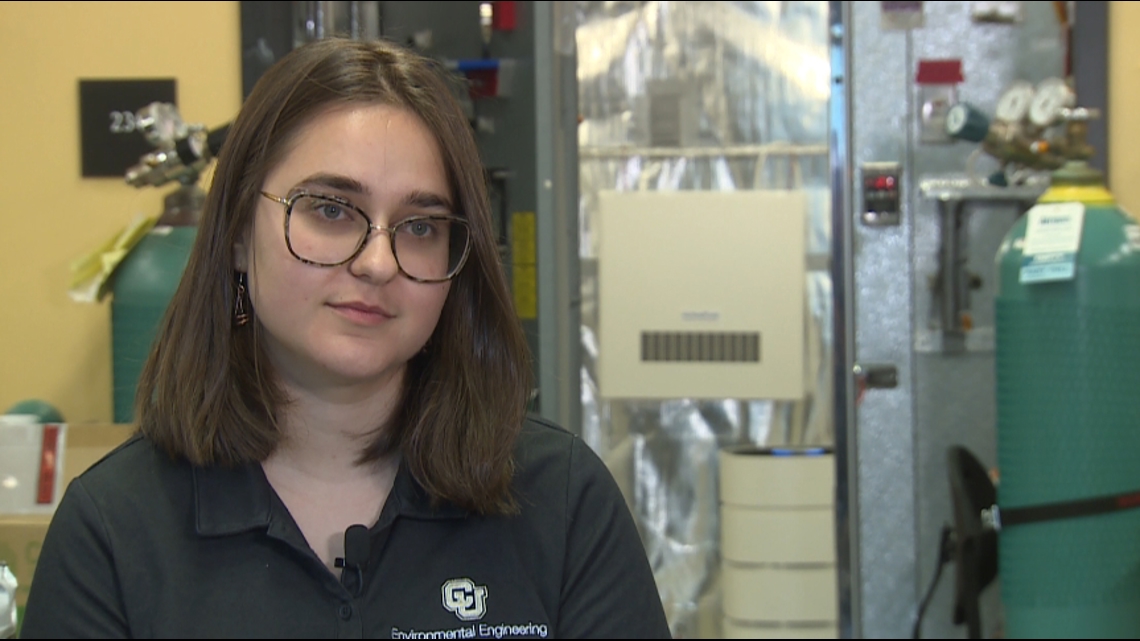
"We spend so much of our lives in classrooms, but also we’re spending an increasing amount of time indoors," she said. "It’s not just affecting children or teachers, this will eventually impact how we’re designing and maintain our indoor spaces."
Dr. Hernandez said their research is continuing and now they're also partnering with CU Boulder's medical school to see if there's a correlation between air quality and student attendance.
"We have a whole team of epidemiologists led by the medical school that’s actually looking at, hey when we run these, do we see less student absenteeism?" he said. "We’re in the very throws of doing that right now. We’re in the second year of that."

